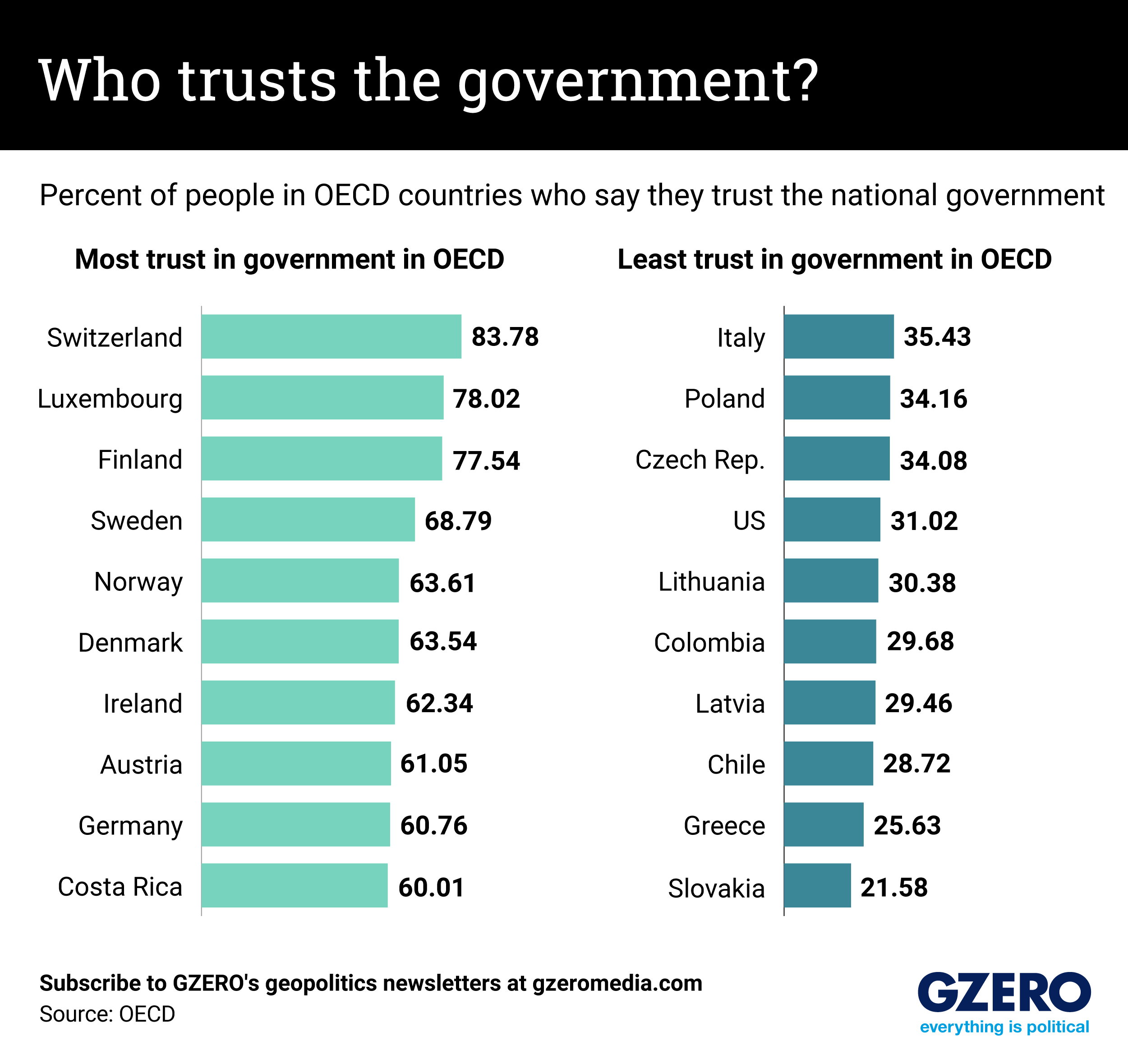Graphic Truth: Who trusts the government?
Switzerland – which has the highest degree of trust in government – is leading by example as the host of this year’s Davos summit focused on Rebuilding Trust. Political stability, as well as government responsiveness and openness, help boost trust in governance. So it’s perhaps no surprise that the Land of William Tell, one of the most stable countries in the world, is brimming with it.
The same cannot be said for leaders of many of the other countries represented at Davos. Risk factors for distrust in governance? Economic inequality, corruption, and political instability, and a whopping57% of people around the world believe their leaders are trying to mislead them. In 2023, Pew found that only 15% of Americans trusted their government to do the right thing – down 7% from 2022.
These numbers are harrowing, but let’s see if the Swiss can rub off on them …
